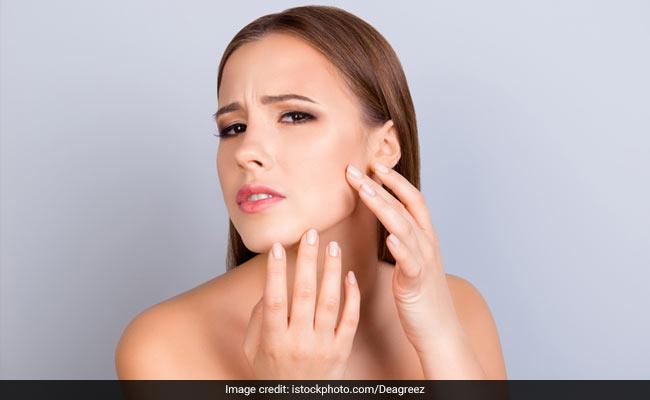Skin Care: Vitamin C can help you fight against several skin problem. Read here to know about the type of vitamin C you should be using according to your skin type.

Skincare tips: Vitamin C can help you deal with skin inflammation
Vitamin C is quite popular among all skincare ingredients. The human body does not produce vitamin C. This means that you get it from the food consumed and the topical products you apply. Beauty brands have many claims about vitamin C, one of which is that it is suitable for all skin types. But is this true? Today let's bust this popular myth about vitamin C and lay down the facts for you.
When it comes to the skin, many people don't know that there are different types of forms in which vitamin C is obtained. Each one has its own properties and pH levels.
Vitamin C and different skin types
The different forms of vitamin C in skincare are:
- Ascorbic Acid
- Sodium Ascorbyl Phosphate
- Magnesium Ascorbyl Phosphate
- Sodium Ascorbate
- Calcium Ascorbate
- Ascorbyl Palmitate
Is vitamin C good for all skin types?
The answer is yes. But it comes with its bag of complications. Vitamin C is suitable for all skin types. However, this is only if you find the proper form of vitamin C that is suitable for your specific skin type!
Using any random form of vitamin C on your skin might not agree with it, especially if you have sensitive skin. Therefore your next task is to identify which one is good for your skin.
Also read: Vitamin C: Know How To Use This Powerful Antioxidant To Get Radiant Skin
Vitamin C and skin types
Every product in the market uses a different form of vitamin C. Therefore, it is essential that you read the product label before you buy a product and make sure that the form suits your skin type.
Let's begin breaking it down for you!
1. Ascorbic acid or L-ascorbic acid
This is the most commonly used form of vitamin C. It is also the purest and most potent form. Due to its low pH levels, it is more beneficial for oily and normal skin. Sensitive and dry skin types may have irritation or other effects to this form of vitamin C.

Skin care tips: Vitamin C accelerates the production of both collagen and elastin
Photo Credit: iStock
2. Sodium ascorbyl phosphate
This is a milder form of vitamin C. It works by transforming into ascorbic acid once it is applied to the skin. This reduces its potency and causes less irritation to the skin. It is a more stable form of vitamin C and is excellent for sensitive skin.
3. Magnesium ascorbyl phosphate
This form of vitamin C has the goodness of hydration benefits and is the most stable form of vitamin C. It has anti-inflammatory properties that make it effective for dry and acne-prone skin! It is a great antioxidant and helps with the discolouration of scars.
4. Sodium ascorbate
This form is similar to sodium ascorbyl phosphate. It turns into ascorbic acid when it touches the skin. With its reduced potency, it causes less irritation and is great for sensitive skin. It helps lighten discoloured skin.
Also read: Vitamin C Serum And 8 Other Skincare Tips For Women Above 40, By Dermatologist
5. Calcium ascorbate
Also called Ester C, this version of vitamin c is non-irritating to the skin because of its neutral pH level. It has hydrating properties that make it great for dry skin. It also helps with collagen synthesis, wound repair, and antioxidant defences and reducing the effects of ageing and dark spots.
6. Ascorbyl palmitate
This form is mild, non-irritating and stable. It aids in improving skin texture, collagen production and reducing hyperpigmentation. It is helpful for very sensitive skin types.
Also read: Vitamin C Benefits: 4 Truths You Must Know
When to see a doctor?
Now that you have a basic understanding of the various types of vitamin C and how each one can affect your skin, it can be easier to choose a product that will not cause adverse reactions. However, you can never be too sure about what is best for your skin. A dermatologist is the only person who can give you that information. They can help aid in choosing the right products for your skin type and addressing other skin problems too.
Never hesitate to reach out to a dermatologist for help!
(Dr. Charu Sharma is a chief Dermatologist at Cureskin)
Disclaimer: The opinions expressed within this article are the personal opinions of the author. NDTV is not responsible for the accuracy, completeness, suitability, or validity of any information on this article. All information is provided on an as-is basis. The information, facts or opinions appearing in the article do not reflect the views of NDTV and NDTV does not assume any responsibility or liability for the same.
DoctorNDTV is the one stop site for all your health needs providing the most credible health information, health news and tips with expert advice on healthy living, diet plans, informative videos etc. You can get the most relevant and accurate info you need about health problems like diabetes, cancer, pregnancy, HIV and AIDS, weight loss and many other lifestyle diseases. We have a panel of over 350 experts who help us develop content by giving their valuable inputs and bringing to us the latest in the world of healthcare.














